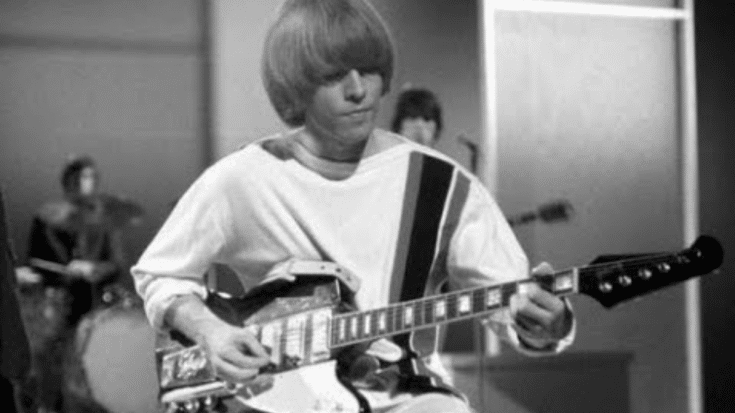5 Founding Member Who Were Kicked Out of Their Own Bands

via Brian Jones' Rolling Stones / YouTube
Music bands often have complex dynamics and things can sometimes go wrong. Tensions and disagreements often lead to changes in the line-up. Here, we look at five founding members who, despite being instrumental in starting their bands, were asked to leave.
1. Brian Jones (The Rolling Stones)
View this post on Instagram
Brian Jones was a highly talented musician and one of the key members of The Rolling Stones. As an original member, Brian’s guitar work and innovative style helped shape the early sound of the band. He was known for his ability to play multiple instruments, adding unique elements to their music.
However, over time, Brian’s relationship with other band members deteriorated. His struggles with substance abuse and erratic behavior created tension within the group. As the band’s music evolved, Brian’s contributions started to diminish. Eventually, the rest of the band members decided it was best for the group to move on without him. Sadly, shortly after his departure, Brian passed away in 1969 under mysterious circumstances.
2. Syd Barrett (Pink Floyd)
View this post on Instagram
Syd Barrett was the imaginative lead guitarist and vocalist for Pink Floyd. His songwriting and unique approach to music greatly contributed to the band’s early sound. Barrett’s creativity was a driving force behind their debut album, “The Piper at the Gates of Dawn.”
But as time went on, Syd’s behavior became increasingly unpredictable. Struggles with mental health and heavy drug use affected his ability to perform and function within the band. During live performances, Syd would sometimes play the same chord repeatedly or not play at all. The rest of the band members found it difficult to work with him and eventually made the difficult decision to part ways with their friend and founder. This led to David Gilmour joining the band to replace him.
3. Dave Mustaine (Metallica)
View this post on Instagram
Dave Mustaine was one of the founding members of Metallica and played a crucial role as the band’s lead guitarist. His aggressive playing style and songwriting helped establish the band’s early thrash metal sound. Many of Metallica’s early songs were co-written by Dave.
Despite his contributions, Dave’s tenure with the band was marked by conflicts and issues related to alcohol and destructive behavior. These problems created friction between him and other band members. Ultimately, the band decided that Dave’s departure was necessary for their continued success. He was released from the band in 1983, which led Dave to form his own successful band, Megadeth.
4. Pete Best (The Beatles)
View this post on Instagram
Pete Best was the original drummer for The Beatles, and he played a key role during the band’s early years in Liverpool and Hamburg. His drumming style and stage presence helped The Beatles get noticed and land important gigs that boosted their popularity.
However, as the band’s career began to take off, producer George Martin and the other band members felt that Pete’s drumming skills were not up to the level required for studio recordings. They decided a change was necessary, leading to Pete being replaced by Ringo Starr in 1962. The decision was a major turning point for the band, which soon after achieved international fame.
5. John Wetton (King Crimson)
View this post on Instagram
John Wetton was the bassist and lead vocalist for King Crimson during a very important period for the band. His powerful voice and bass playing helped to define their sound on classic albums like “Larks’ Tongues in Aspic” and “Red.” John’s contributions were extremely significant.
Despite his impact, internal disagreements and changing musical directions led to his departure from the band. King Crimson went through several line-up changes, and these shifts often influenced the band’s direction. John’s time with King Crimson was relatively short-lived, but his legacy with the group remains strong.













